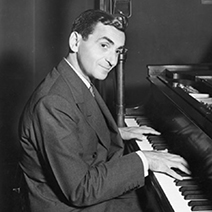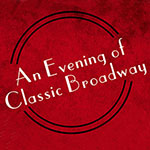Lyrics & Lyricists
Irving Berlin: American
92nd Street Y, NYC, March 25, 2018
Reviewed by Marilyn Lester for Cabaret Scenes

There’s no question that the child immigrant Israel Beilin, who would become the iconic songwriter Irving Berlin, deserves the fullest extent of honor for enduring contributions to the American ethos. The tribute Irving Berlin: American (saluting the 100th anniversary of “God Bless America”) was both triumphant and sadly disappointing. Deserving kudos are the spectacular dance numbers opening the two acts and dispersed throughout. With choreography by Artistic Director Noah Racey (assisted by Sara Brians), Holly Butler, Emily Hsu, Richard Riaz Yoder, and Danny Gardner joyfully tapped to updated arrangements of numbers including “Marching Along with Time” and “Steppin’ Out with My Baby.” Gardner especially excelled with numbers such as “Spanish Love” and “Cheek to Cheek.” Kudos to arrangers Aaron Gandy, Dan Garmon (music director), and Ross Patterson for proving century-old songs can be made modern and maintain relevance. Adding a violin (played by Justin Smith) to the instrumentation added texture and depth. Kudos also for including many of Berlin’s lesser-known works, and for the glory of jazz/pop singer Bryonha Marie, who scintillated with “Blue Skies,” “Say It Isn’t So,” and the searing “Supper Time.”
The downside of Irving Berlin: American was the conceit of a scripted interchange between the ghost of Irving Berlin (Stephen DeRosa) and an eager young songwriter (Jada Temple) interviewing him. Co-written by Cheryl L. Davis and Racey, the narrative was expository and heavy-handed, also casting Berlin as an overly diffident sort, not impressed at all with his own achievements. DeRosa excelled when liberated from the clunky script and when singing, particularly with “Alexander’s Ragtime Band” and “Always.” Temple proved an annoying presence overall. Politicizing the script beyond its homage to Berlin’s love of country was an error in judgment, especially the uninformed scree concerning alleged racism in the original lyric of “Puttin on the Ritz.” Delivered with sledgehammer subtlety, the narrative completely failed to understand the context or purpose of the 1927 song (it was an enormous hit, published as an independent song, but introduced in the 1930 film of the same name), thereby rendering an immense disservice to Mr. Berlin.
Adding to the positives, however, were the illuminating projections of Chelsie McPhilimy, along with the lighting design of John Kelly and a beautiful array of sourced costumes.





